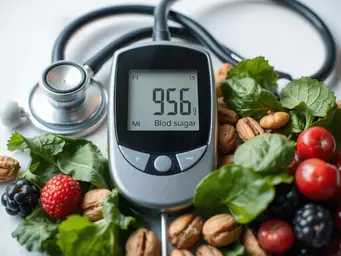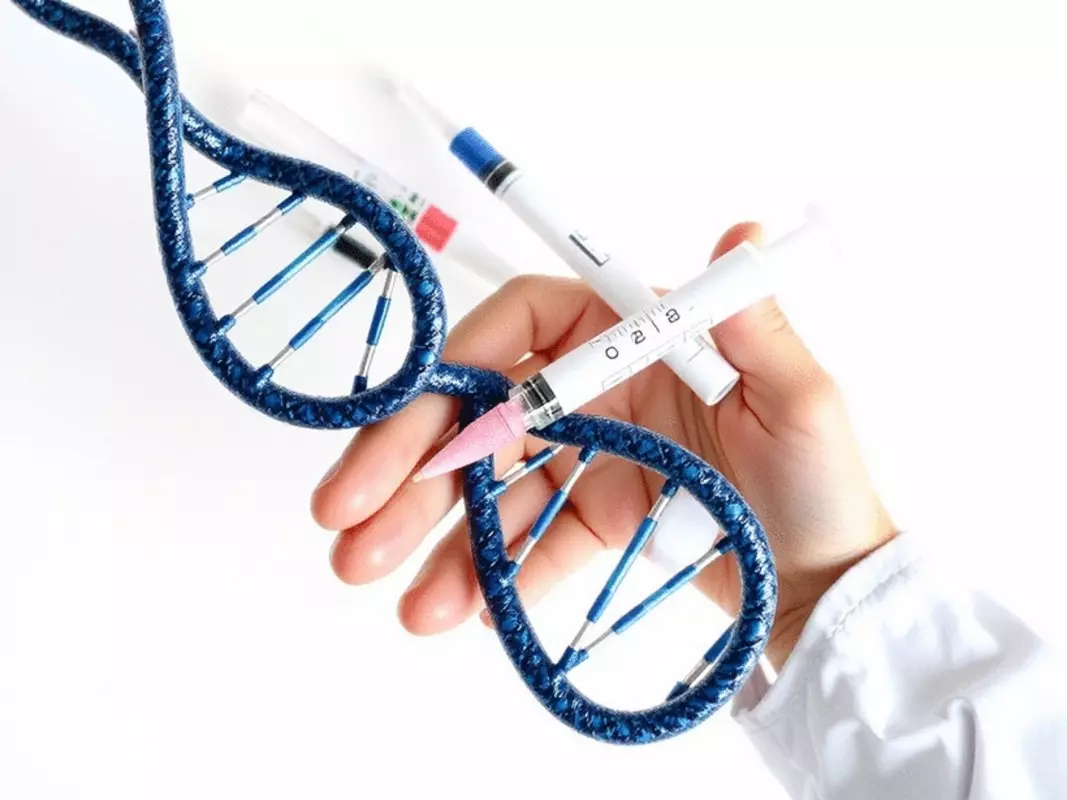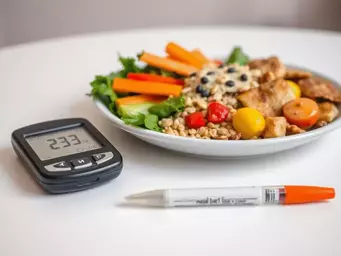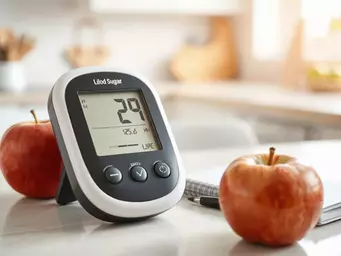Manage Post-Meal Blood Sugar

Consider this: managing your blood sugar levels can significantly enhance your quality of life, not just for those with diabetes but for anyone seeking better health. As we unpack the complexities of blood sugar spikes, you'll discover practical strategies to regain control over your well-being.
What You Will Learn
- Identifying primary causes of blood sugar spikes, including carbohydrate types and portion sizes.
- Understanding the role of insulin and its impact on blood sugar regulation.
- Strategies for maintaining stable blood sugar levels through dietary choices and physical activity.
- The importance of mindful eating and recognizing hunger cues to prevent spikes.
Key Factors Influencing Blood Sugar Spikes
Understanding the primary factors that contribute to blood sugar fluctuations after meals is vital for effective diabetes management.
What Causes Spikes?
- Type of carbohydrates
- Portion sizes
- Meal timing & composition
Impact of Insulin
- Insulin resistance
- Type 1: No insulin production
- Type 2: Resistance to deficiency
Effective Strategies
- Low glycemic index foods
- Fiber, protein, & veggies first
- Regular physical activity
Key Takeaways
- Monitor carb intake
- Pair with healthy fats/proteins
- Mindful eating & movement
Understanding Blood Sugar Spikes and Their Impact on Health
Understanding how blood sugar spikes occur is crucial for anyone managing diabetes. These spikes, which refer to sudden increases in blood glucose levels, can have significant effects on your overall health if not properly managed. For individuals with diabetes, recognizing the causes and consequences of these fluctuations can empower them to take control of their health journey.
After meals, our bodies naturally experience changes in blood sugar levels. However, for those with insulin resistance or insufficient insulin production, these changes can be more pronounced. This is why I always emphasize the importance of understanding what triggers these spikes to better manage them effectively.
What Causes Blood Sugar Spikes After Meals?
Several factors can lead to blood sugar spikes following meals. Here’s a quick rundown of the most common culprits:
- Type of carbohydrates consumed
- Portion sizes
- Timing and composition of meals
- Physical activity levels
- Stress and emotional factors
For instance, consuming high-glycemic index foods can lead to rapid spikes in blood sugar, while larger portion sizes can overwhelm the body's ability to regulate glucose effectively. These factors highlight the importance of making informed dietary choices. Further research into factors influencing blood sugar levels can be found in this detailed study on blood glucose control.
The Significance of Managing Blood Sugar Levels for Overall Well-being
Maintaining stable blood sugar levels is not just about preventing diabetes complications; it’s about enhancing your overall quality of life. Consistently high blood sugar can lead to serious health issues such as heart disease, kidney damage, and nerve problems. By managing your blood sugar levels, you're not just preserving your health; you're also improving your daily energy levels and mood!
It’s essential to recognize that effective blood sugar management can lead to better long-term outcomes. As I often tell my patients, understanding your body and its signals enables you to make proactive choices that can lead to healthier living. For comprehensive guidelines on diabetes care, refer to the Standards of Care in Diabetes.
The Connection Between Insulin and Blood Sugar Regulation
Insulin plays a pivotal role in blood sugar regulation. It is the hormone responsible for allowing glucose to enter your cells, where it is used for energy. Without sufficient insulin, your blood sugar levels can rise to dangerous levels. Here are some key points to consider:
- Insulin resistance occurs when cells do not respond effectively to insulin.
- Type 1 diabetes is characterized by the body’s inability to produce insulin.
- Type 2 diabetes often begins with insulin resistance but can progress to insulin deficiency.
Understanding your body’s relationship with insulin is crucial for managing diabetes effectively. By making lifestyle changes and possibly incorporating medication, you can influence how your body responds to insulin and maintain healthier blood sugar levels. Regular blood sugar monitoring is key to this understanding.
Pro Tip
Did you know? Keeping a food diary can significantly enhance your ability to manage blood sugar levels. By tracking what you eat and how it affects your glucose levels, you can identify patterns and make informed dietary choices that prevent spikes. This proactive approach empowers you to take control of your health journey effectively!
Frequently Asked Questions (FAQs)
What are blood sugar spikes?
Blood sugar spikes refer to sudden and significant increases in blood glucose levels, particularly after meals. These can be more pronounced in individuals with diabetes or insulin resistance.
What causes blood sugar spikes after meals?
Common causes include the type and portion size of carbohydrates consumed, meal timing and composition, physical activity levels, and emotional factors like stress.
Why is managing blood sugar levels important?
Maintaining stable blood sugar levels is crucial for preventing long-term complications of diabetes, such as heart disease, kidney damage, and nerve problems. It also contributes to better daily energy levels and mood.
How does insulin affect blood sugar?
Insulin is a hormone that helps glucose enter cells to be used for energy. Insufficient insulin production (Type 1 diabetes) or ineffective cell response to insulin (insulin resistance, common in Type 2 diabetes) can lead to elevated blood sugar levels.
What are effective strategies to prevent blood sugar spikes?
Key strategies include choosing low glycemic index foods, incorporating plenty of fiber, eating proteins and vegetables before carbohydrates, and engaging in regular physical activity. Monitoring carbohydrate intake and practicing mindful eating are also beneficial.
Recap of Effective Strategies to Prevent Blood Sugar Spikes
Managing blood sugar levels is crucial for those with diabetes, and I’m here to help you recap some effective strategies that can make a real difference in your daily life! By implementing these tips, you can take control of your health and prevent those pesky blood sugar spikes after meals.
Here are some key strategies to keep in mind:
- Choose low glycemic index foods to keep your blood sugar stable.
- Incorporate plenty of fiber in your meals to slow down sugar absorption.
- Make sure to eat proteins and vegetables before carbohydrates for better blood sugar control.
- Stay physically active with regular exercise, as it enhances insulin sensitivity.
- Consult with your healthcare provider to tailor your diabetes management plan.
By focusing on these areas, you can significantly improve your blood sugar management. Remember, small changes can lead to significant impacts on your well-being!
Key Takeaways for Managing Post-Meal Blood Sugar Levels
As we’ve discussed, understanding the factors that affect your blood sugar can empower you to make informed choices. Here are some quick takeaways to keep in your toolbox:
- Monitor your carbohydrate intake and choose complex carbs.
- Pair your meals with healthy fats and proteins for balanced nutrition.
- Practice mindful eating to help you recognize hunger and fullness cues.
- Incorporate regular movement, even if it’s just a walk after meals.
Implementing these strategies can help you maintain steady blood sugar levels and lead to a healthier lifestyle overall!
Encouragement to Adopt Sustainable Lifestyle Changes
Change doesn't have to be drastic to be effective! I encourage you to adopt sustainable lifestyle changes that you can stick with long-term. Consider starting with small adjustments, such as swapping out one processed snack for a whole food option each week. This gradual approach can make the transition feel less overwhelming and more manageable.
Remember, it’s all about progress, not perfection. Celebrate every small victory along the way! Whether it's trying a new recipe or reaching a step goal, each step counts towards better health.
Call to Action: Taking Charge of Your Health Journey
Now that you have a better understanding of effective strategies for managing blood sugar, it’s time to take charge of your health journey! At What Is Diabetes, we are here to support you every step of the way in your quest for better health.
Resources and Tools for Personalizing Your Diabetes Management Plan
To help you tailor your diabetes management plan, consider utilizing our comprehensive resources available on our website. From doctor-reviewed guides to meal planning tips, we provide valuable tools to assist you in making informed choices. Here’s what you can explore:
- In-depth articles on diet and exercise.
- Recipes featuring low glycemic index foods.
- Visual aids for understanding blood sugar levels.
- Regular updates on diabetes research and management practices.
Take advantage of these resources to personalize your approach to diabetes management!
Join Our Community for Support and Shared Experiences
Lastly, I invite you to join our vibrant community at What Is Diabetes. Sharing experiences with others who understand your journey can provide motivation and encouragement. Whether you’re looking to connect through online forums or attend local support groups, our community is here for you!
So, what step will you take today to empower your health? Remember, you are not alone in this fight, and together, we can navigate the complexities of diabetes management!
Recap of Key Points
Here is a quick recap of the important points discussed in the article:
- Recognize triggers: Understand what causes blood sugar spikes, such as the type of carbohydrates consumed and portion sizes.
- Manage blood sugar levels: Maintaining stable blood sugar is essential for overall well-being and to prevent serious health complications.
- Incorporate healthy foods: Opt for low glycemic index foods, increase fiber intake, and include proteins and vegetables before carbohydrates.
- Stay active: Regular physical activity enhances insulin sensitivity and helps manage blood sugar levels.
- Consult healthcare providers: Work with professionals to create a personalized diabetes management plan.









